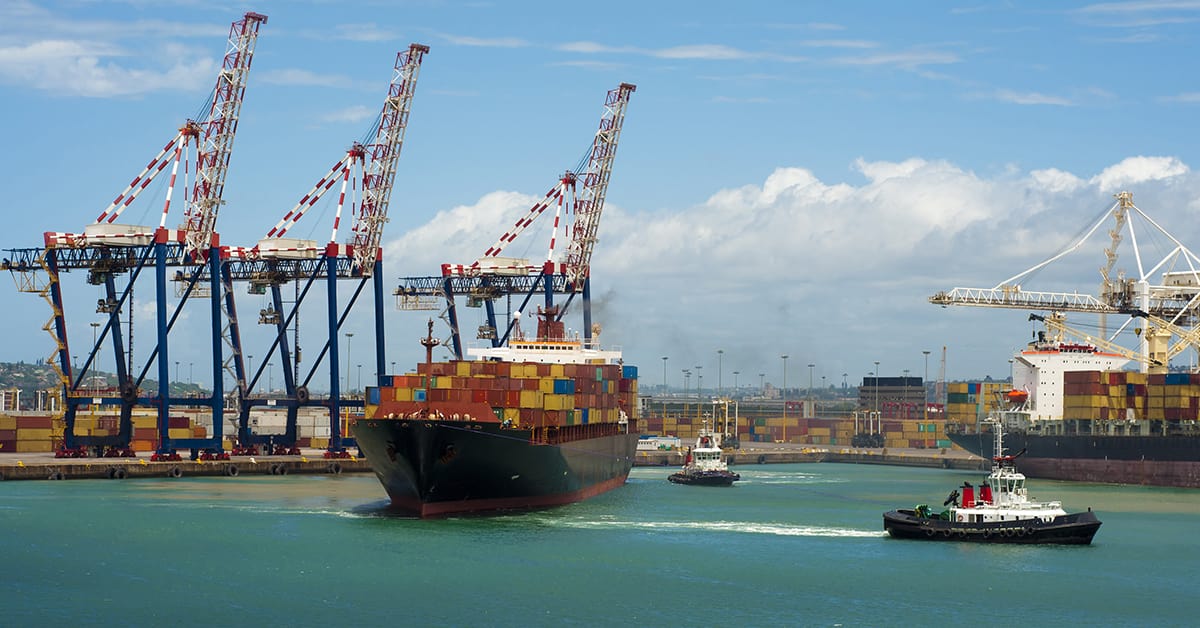The continent's trade finance needs are expected to increase as the implementation of the African Continental Free Trade Area agreement begins.

Africa is facing a capacity problem: The Covid-19 pandemic has pressured central banks and market regulators to invite new faces to the trade finance table, including asset managers and private equity firms, according to a jointly published research report.
The authors of the report, published by the African Export Import Bank, the UN Economic Commission for Africa, and Making Finance Work for Africa, recommended greater coordination and alignment regarding pandemic response across the continent.
Africa’s trade finance contracted by 10% in 2020 as the continent entered its first recession in 25 years said President of Afreximbank Benedict Oramah during a virtual event for the report’s April 15 release.
Africa’s trade finance needs are quite significant and are expected to increase as the implementation of the African Continental Free Trade Area agreement came into effect beginning in 2021, according to the report’s authors.
African development finance institutions have an important role to play by increasing their support to commercial banks, enabling them to engage in trade finance, the authors argued.
Although the responses by African central banks to Covid-19 did not constitute impediments to trade finance, there were inconsistencies at some levels. For instance, while some regulatory agencies took necessary measures to facilitate the clearance of goods, others were less able to apply the same flexibility in the face of major disruptions in international courier services, wrote the authors.
The survey, which covered the first four months of 2020, was designed to provide an understanding of the dynamics and impact on trade finance in Africa in the wake of the pandemic. Therefore, it will inform ongoing efforts by Afreximbank and African Development Bank to further enhance their trade finance efforts to banks to fashion other measures as part of the continental response to the challenge, Oramah said.
Africa’s large-scale content of foreign currencies used in regional trade, massive outflow of funds from the continent, and risk-averseness of banks were other factors that contributed to the decline of trade finance within the region, according to the authors.
The outflows exacerbated the liquidity constraints of African banks to finance the growth of African trade, they concluded.
While the rejection rate of letters-of-credit by banks increased, the corresponding banking relationships were not used or canceled altogether. “Most LC cancellations and correspondent banking services withdrawals appear to be caused by a perceived high risk,” they wrote.
Much more must be done to address “the perennial cancer of wrong risk estimation which leads to the high premium placed on African bank risk,” the authors added.
They noted that risk-averseness grew among banks operating in the continent, with domestic and privately owned lenders being as risk-averse as foreign banks. It added, however, that while the reactions of global banks facing heightened uncertainty could be part of the long-term trend, the relative increase in risk aversion by domestic banks is viewed as something temporary and driven by liquidity constraints and difficulties in access to foreign exchange.
Government-owned financial institutions appeared to have more appetite for risk, as they made efforts to fill the liquidity crisis during the pandemic, noted the authors. However, “sharp contrast in the perception between domestic, privately owned banks, and government-owned banks, suggests that other factors could be driving credit allocation and trade finance.”
Some of the virtual event’s panelists cited concerns that non-performing loans of African banks could spike. If that were to happen, it could force banks to become more risk averse, they added.
In Namibia, for instance, NPLs were at about 3% before Covid-19. Now, they are rising to about 8% in some sectors, and tending to about 10% in others, according to Ebson Uanguta, the Deputy Governor of the Bank of Namibia, who represented the bank’s Governor during the event.



